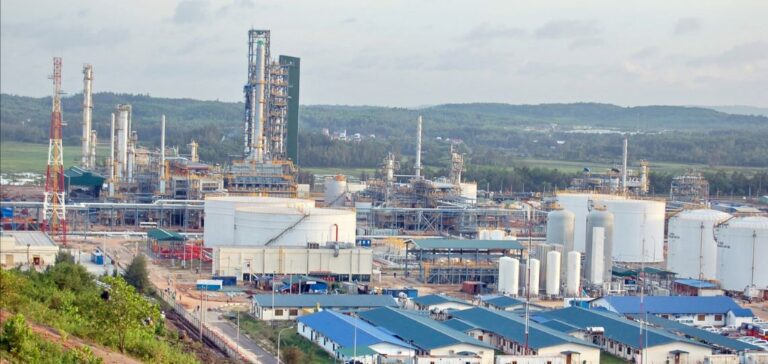In Vietnam, importers of petroleum products face difficulties in obtaining supplies from the world market. This is the result of the fall of the dong against the dollar and the tightening of bank credit.
Depreciation of the dong
In Vietnam, the dong has fallen by almost 10% against the dollar since the end of January. This devaluation makes it difficult to access foreign currency. At the same time, fuel import prices are doubling or tripling compared to previous years.
Other Asia-Pacific economies are also struggling with high energy prices. But in Vietnam, the number of importers is halved from 36 to 19. In addition, banks are tightening their lending policies, requiring letters of credit in VND for fuel buyers.
Small importers are not able to borrow in dollars or obtain bank letters of credit. The situation provides an incentive for companies to maintain fair fuel reserves in compliance with regulations, despite losses. The two national refineries supply 70% to 80% of the domestic fuel market, above their capacity.
Thus, the Dung Quat refinery increased its production from 107% to 109% on October 19 to avoid shortages. The one in Nghi Son is working at full capacity. These two refineries produce a total of 330,000 barrels per day.
High fuel prices
With import costs increasing from 306 Dong/liter in the first quarter to 450 Dong/liter in the second quarter. Then from 967 Dong/liter in the third quarter, companies lose 667 Dong/liter in the third quarter. Refineries are losing about 1100 Dong/liter in the fourth quarter.
Vietnam says sales from January to September were up 8% from the previous year. This compares to losses of $31.9 million. Faced with this economic situation, companies find it impossible to obtain bank loans.
Continued low pump prices continue to support fuel demand. Gasoline imports jumped 91% month-on-month and 537% year-on-year. In September, they stood at 147,923 tonnes.
The rising dollar limits the ability of small buyers to import gasoline in October, while large buyers cannot. If the financing situation worsens, sellers may demand higher prices. This decision will cause considerable financial turbulence.





















